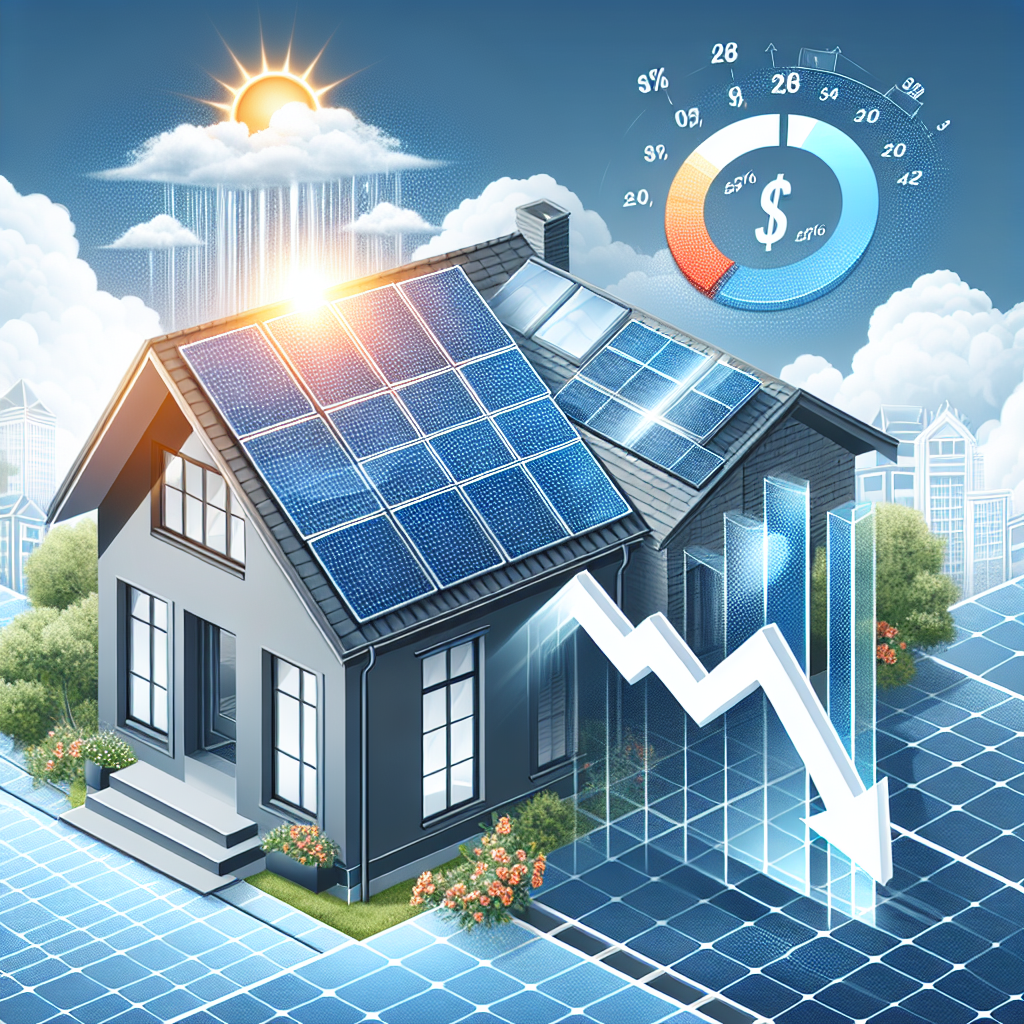As energy prices continue to rise, homeowners and businesses alike are seeking innovative solutions to curb their energy expenses. One such solution that has gained significant momentum in recent years is solar energy. Investing in solar power not only helps reduce your energy costs but also contributes to a more sustainable future. In this article, we’ll explore the benefits of solar energy, the financial implications of making the switch, and how to get started with your solar investment.
The Rising Cost of Traditional Energy Sources
The increasing cost of conventional energy sources has made many households feel the pinch. According to recent studies, utility costs have consistently escalated year after year, straining budgets and causing many to reconsider their energy options. This is where solar energy shines: it offers a steadfast alternative that can lead to substantial savings.
Understanding How Solar Energy Works
Before diving deeper into the benefits, it’s important to understand how solar energy systems function. Solar panels convert sunlight into electricity through photovoltaic cells. When sunlight strikes these cells, it creates an electric current that can power your home or business. Any excess energy generated can be sent back to the grid, often resulting in credits on your energy bill.
The Financial Savings of Going Solar
Reducing Your Monthly Energy Bills
One of the primary motivations for homeowners to switch to solar is the potential for significant savings on their monthly energy bills. By generating your own electricity, you reduce the amount you need to purchase from your utility provider. Many users report reductions of 50% or more in their energy costs, allowing for more disposable income for other expenses or savings.
Government Incentives and Tax Benefits
Investing in solar energy is not only about individual savings; it is also supported by various government incentives. Many states offer tax credits, rebates, and other financial incentives that can significantly reduce the upfront costs of solar panel installation. For instance, the Federal Investment Tax Credit (ITC) allows homeowners to deduct a significant percentage of their solar installation costs from their federal taxes.
Increase Your Property Value
Numerous studies have indicated that homes equipped with solar energy systems have higher property values. According to a report from the National Renewable Energy Laboratory (NREL), homes with solar panels sell for an average of 4.1% more than comparable homes without them. When you invest in solar, you’re not only saving on energy costs but also making a savvy addition to your property’s value.
Environmental Benefits: More Than Just Financial Savings
A Greener Tomorrow
A pivotal reason many individuals opt for solar energy is the positive environmental impact. Traditional energy sources such as coal, oil, and natural gas contribute significantly to greenhouse gas emissions, which is a primary driver of climate change. Solar energy provides a clean, renewable energy source that reduces your carbon footprint, helping to protect the planet for future generations.
Energy Independence
Investing in solar energy also promotes energy independence. By generating your own electricity, you rely less on fossil fuel-powered utility companies. This shift not only provides peace of mind regarding energy security but also helps mitigate the volatility of energy costs linked to global markets.
Getting Started with Solar Energy
Evaluate Your Energy Needs
The first step in transitioning to solar energy is evaluating your current energy consumption. Analyze your past utility bills to understand your energy usage patterns. This will help you determine the right size and type of solar system for your needs.
Choosing the Right Solar Installer
Selecting a reputable solar installer is crucial to maximizing the benefits of your investment. Look for companies with good reviews, a solid track record, and certifications such as the North American Board of Certified Energy Practitioners (NABCEP). It’s also wise to obtain multiple quotes before deciding.
Explore Financing Options
Investing in solar doesn’t necessarily mean you need to pay outright for your system. Various financing options are available, including solar loans, leases, and power purchase agreements (PPAs). Each option has its pros and cons, so it’s essential to do your homework and choose the one that best fits your financial situation.
Conclusion: The Future is Bright with Solar Energy
With rising energy costs and increasing awareness of environmental issues, investing in solar energy is a forward-thinking decision that can provide both immediate financial relief and long-term benefits. By reducing your energy costs, taking advantage of incentives, and contributing to a healthier planet, you’d not only be making a wise financial investment but also a responsible one.
In a world that is changing rapidly, consider making the leap into solar energy — a bright future awaits both your wallet and the environment. Don’t hesitate; the time to invest in solar is now!


